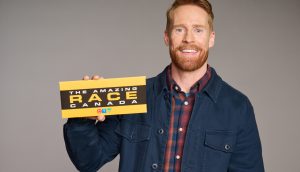Athlete endorsements might not bring the media space or field-side brand presence that come with league- or team-level sponsorships. But they remain popular with brands for many reasons, including the ability to leverage the affinity customers have for the athlete and the benefits of associating with their personal brand equity.
That could be seen during the FIFA Women’s World Cup, where the national team players garnered a lot of brand attention, despite the defending Olympic Gold medalists’ early exit from the tournament.
One of the most common faces is Christine Sinclair, captain of the Women’s National Team and FIFA’s all-time leading scorer.
CIBC named Sinclair as an ambassador prior to the World Cup, the bank’s latest effort to help expand the sport of soccer across Canada. It followed a multi-year sponsorship deal the bank signed with Canada Soccer and the Canadian Premier League (CPL) that also supports the growth of the sport at a grassroots level across the country. CIBC is also a founding partner of Project 8, an initiative led by Olympic medalist Diana Matheson to create a women’s professional soccer league in Canada beginning in 2025.
Esther Benzie, VP of brand and advertising at CIBC, says Sinclair is a perfect fit for the bank’s approach to soccer.
“Our ambition is to help make soccer more inclusive, more diverse and more equitable for all in Canada,” says Benzie. “Our partnership with Christine is a proud next step in our bank’s support of this incredible sport and we’re committed to helping remove the barriers women athletes face while expanding opportunities for everyone.”
Brian Levine, founder and president of Envision Sports & Entertainment, says breaking through the clutter is one big reason athlete endorsements work. Another benefit is that athletes deliver their own built-in communication channels via their social media platforms. More recently, he says many of the brands associated with Sinclair are leveraging their athlete endorsements to reinforce their commitment to gender equity or other important social issues.
When identifying and engaging with the right athlete, Levine encourages brands to develop a clear set of criteria before going to the market.
“They should also get a proper handle on the going rates to engage an athlete or other brand ambassador,” he says. “It’s also important to engage different stakeholders within your company. Although the primary reason to engage an athlete might be because you need them for a TV campaign to promote a new product or service or to reinforce brand equity, you might be able to weave in an appearance with employees and tap into a separate budget.”
Lisa Mazurkewich, VP of marketing for Subway Canada, says Sinclair is a female role model, which Subway knows is meaningful to the communities in which it operates – as well as every young girl in the country with huge ambitions to achieve their own goals. To that end, Sinclair was one of several athletes featured in the QSR’s largest-ever campaign earlier this year, alongside the likes of Toronto Raptors Scottie Barnes and Chris Boucher, men’s team player Patrice Bernier, skateboarder Fay DeFazio Ebert and snowboarder Sebastien Toutant. As the World Cup approached, Sinclair was featured in new digital, CRM, web and in-restaurant assets.
“[We did this] to connect and engage with our audiences in ways that matter to them,” Mazurkewich says. “We leveraged Christine’s world-class talent and passion for sports to up our game and develop captivating creative that would resonate with Canadians.”
Heather Nobes, head of marketing at Visa Canada – another Sinclair sponsor – says the company’s partnership has been rewarding and continues to resonate with Visa’s target audience, especially young female soccer players, who see her as a role model. And for this year’s World Cup campaign, she was featured alongside Ashley Lawrence, who grew up idolizing Sinclair, something that was featured in one of the campaign spots.
“We wanted to capture the inspirational career journeys of female athletes and their positive impact on the next generation, reinforcing Visa’s continuing commitment to supporting women who are changing the game,” says Nobes. “These efforts have not only reinforced a strong and positive brand image for Visa in the sports industry but have also become a source of inspiration for women all around the world. The program extends Visa’s commitment to connecting the world through sport and championing women athletes at a time when women’s soccer continues to reach new heights.”
Featured image by Ray Terrill
























